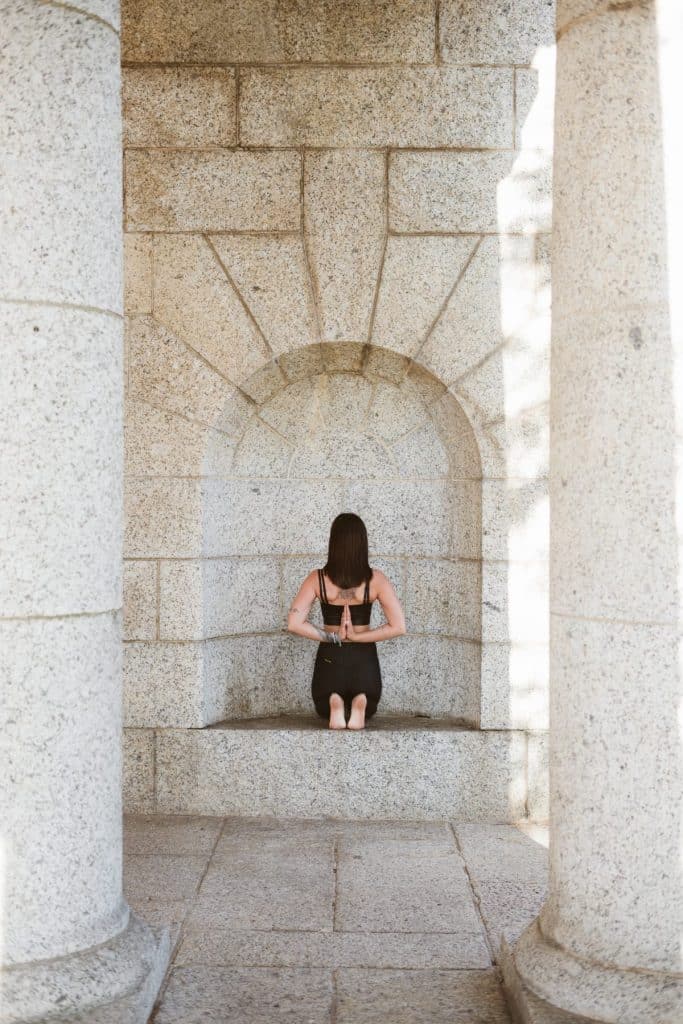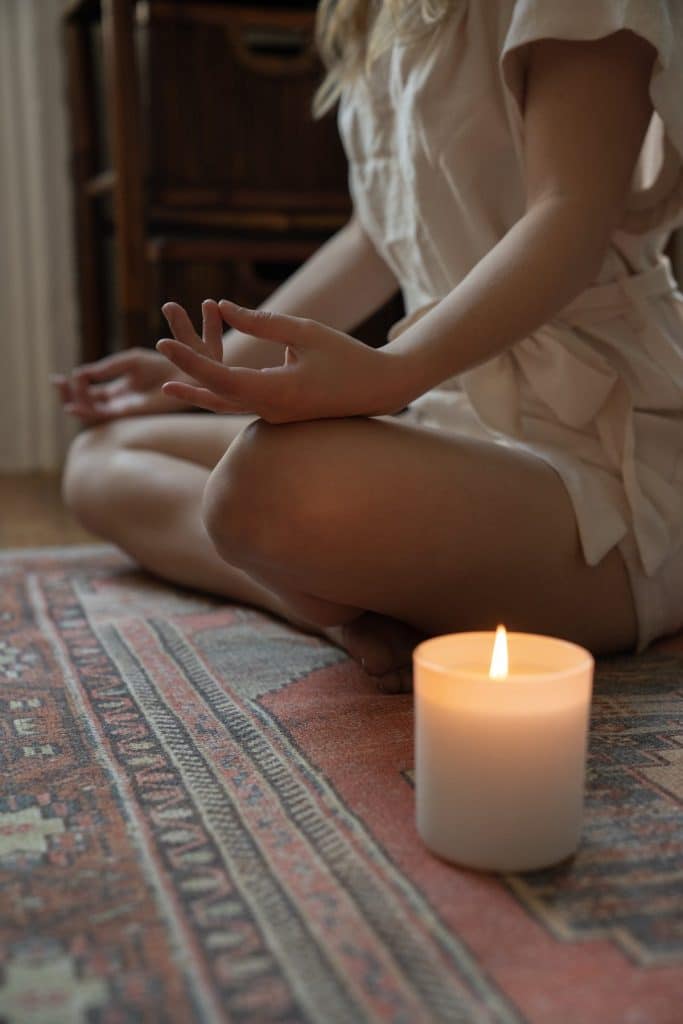Spiritual not Religious
Yes. Yes, you can be spiritual not religious.
I listened to a podcast recently in which a man from the American military stated firmly and clearly that he was an atheist.
The whole point of the podcast was his assertion that everyone should be permitted spiritual exemptions from mandates of any sort, and I thought it was the most fascinating point of view from someone who declares themselves a staunch atheist yet supports and even asserts his right to spiritual conviction.
And while some may say that he is manipulating the language or using terms to his own benefit, the truth is that there is absolutely no contradiction between someone not being religious but being deeply spiritual.
Why?
Let’s look.

Table of Contents
Religion
There are a few basic principles required of religious people that, if not adhered to, make you less not so much religious as perhaps spiritual or even not spiritual at all and just plain secular.
The word religion, after all, is defined as something you engage in ritualistically, with devotion, and regularity.
You cannot be religious and not practice, not attend church, not know your scripture.
I have met a lot of people who describe themselves as “lapsed,” and I get the sense this is what they are referring to.
They may have grown up in the tradition, but they no longer practice or have any real knowledge of the religion.
So what is required of a person who calls themselves religious?
Scripture
First, religion is based on scripture.
Whether it is Buddhism or Christianity, Judaism or the Muslim faith, Mormonism or Jehovah’s Witness, they all have a book.
A foundational, seminal book that plants the seeds of the specific religion.
Then, most religions also have multiple other books that interpret the religion as laid out by the first book.
If you don’t have a scripture to base your beliefs on, you are likely spiritual not religious.
Indoctrination or Initiation

When people ask me if I’m Wiccan, and I say no, they want to know how I can be a witch but not Wiccan.
This is how.
Wicca is a religion. You must be indoctrinated into the practice and initiated by a “high priestess.”
The same goes for most religions.
You have to be taught through lessons and classes, you have to commit yourself, and you have to be initiated, baptized, or otherwise officially welcomed into the religion.
Attendance
Don’t tell me you’re religious but you don’t go to church. In this case, you are spiritual not religious.
Genuinely religious people attend their temple, church, or other meeting place regularly with other members of their religion.
They practice together, pray together, and otherwise hold each other accountable.
Attendance is a critical factor in religion; in fact, you do so religiously.
Community
Finally, community is another big part of religion.
Religious communities know their members, check in on them, hold them to high religious standards, and support each other.
In fact, community is one of the only things that appeals to me as someone who is spiritual not religious.
Spirituality

Spirituality, on the other hand, has no such stringent or strict guidelines.
You can be entirely irreligious and be deeply spiritual.
You can be lightly interested in various religious teaching and tenets and be deeply spiritual.
And yes, you can even be an atheist, someone who does not believe in God at all, and still be deeply spiritual.
Faith
The biggest factor for someone who is spiritual not religious is faith.
We have faith in something bigger than ourselves, we recognize that we are all connected, all living things, and that we have an obligation to one another as humans, that we are shepherds of the earth.
This faith does not have to mean that we believe in life after death, that we think anything more than that we honor life and the individual as sacred.
This alone can be spirituality.
Belief
There is, however, also usually an element of belief in spirituality.
Whether it be in an afterlife, in reincarnation, in both, in a higher power, in a loving Universe.
We usually have a set of beliefs that come from studying various texts and combining all of the truths that stand to us.
What makes you spiritual not religious is that you can pick and choose from among all the texts. You don’t have to choose just one.
And you don’t have to adhere to every single piece of a text.
This is the biggest factor for me as someone who is spiritual not religious.
I love parts of the bible, part of the Torah, parts of the Bhagavad Gita, parts of the Tao Te Ching, and there are other parts that make no sense to me or that I stand adamantly against.
I understand, even as many religious people do, that these texts, though they may have been inspired by God, were also filtered through the lenses of the men and the times in which they were written.
So, when the bible says a man should not have sex with his wife while she is menstruating because she is unclean, I get that humans were ignorant of basic anatomy and the reproductive system at the time and somehow someone wedged that issue into the scripture.
While religious people will maintain their religion and simply ignore the parts of the texts they don’t like, I choose spirituality because I don’t want to belong to a religion that maintains so many parts of a text that no longer serve the people who follow it.
Practice

Practice is a big part of spirituality.
You can say you are spiritual, but if you are in a constant state of anger, frustration, stress, anxiety, and/or depression, you have fallen out of practice.
Spiritual people tend to practice their spirituality as much as if not more than religious people do.
Quite often, spiritual people can tell you where their practice comes from, why they do what they do, and what their belief system is based on.
They will also know a lot of scripture and can quote the great leaders, teachers, and prophets.
It takes a lot of soul searching to declare yourself spiritual not religious.
Community
Spiritual people also have community like religious people do, but it is often much looser and more inclusive, which means the groups are wider reaching often not as close knit.
Spiritual communities sometimes exist as churches or temples, places of worship and community where we can go and meet, share our ideas and concepts, and explore our spirituality with others.
Spiritual centers for spiritual not religious people are harder to find, and they can descend into cult like behaviors, so it is advised to be cautious when seeking out spiritual community.
How to Engage in Spirituality without Religion
If you’ve been looking for ways to explore your spirituality without religion, there are a few basic ways you can begin to connect to your higher consciousness or your sense of interconnectedness.
Or both.
Meditate
Meditation is the foundation of all spirituality, including religious spirituality.
I have heard it said that prayer is asking questions of God, or the Universe, and meditation is listening for the answer.
There is a lot of emphasis in religion on prayer, and very little emphasis placed on just sitting still and listening.
To begin to explore your own sense of spirituality, sit for 20 minutes every day, before you do anything else, and just quiet your thoughts.
Be still.
Be silent.
Be, as Dr. Joe Dispenza says, in a state of relaxed awakening.
This is true spirituality.
When you meditate regularly, you cannot help but connect with something bigger than yourself.
And it is in that instance that you realize we are not alone.
We are more than flesh, bone, and blood.
We are also spirit.
Read and Explore

When I began a rediscovery of my spirituality about five years back after a long hiatus into logic and science and politics and government, I picked up a book by Gabrielle Bernstein because she was giving a talk in San Francisco near where I lived, and I thought, “why not?”
The book came with the ticket to her talk, and from there I read her two other books, then I found two other authors in the same area of personal development.
Then I read some religious texts, and then something on Buddhism, and so on and so on.
That’s how spiritual exploration goes.
I have yet to meet someone who considers themselves spiritual who cannot engage in a conversation on all things personal development, law of attraction, self-healing, and more.
We are a hungry-for-wisdom bunch.
Love
Finally, the biggest responsibility you have as a spiritual person is to love.
Love unconditionally and love yourself first.
The key to living a spiritual life is to trust in the paradox of surrender and intention.
You trust that everything is love, and everything is perfect right now in this moment.
Plus, you set your intentions as the author of your own destiny.
And you do it all with so much love in your heart that you could burst.
But don’t worry. You won’t.
Happy manifesting!






